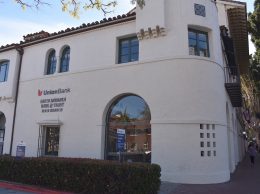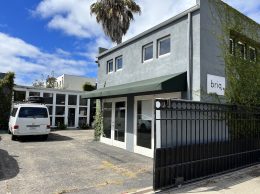Pacific Capital reports $28M loss, but Sept. profit
IN THIS ARTICLE
- Banking & Finance Topic
- Staff Report Author
By Staff Report Tuesday, November 9th, 2010
Editor’s Note: This story was updated at 4:50 p.m.
Pacific Capital Bancorp lost nearly $28 million in July and August but said the first month under its new Texas owners was profitable.
Texas-based private equity firm Ford Financial Fund acquired 86 percent of Pacific Capital for $500 million at the end of August. Pacific Capital — the parent company of Santa Barbara Bank & Trust and First Bank of San Luis Obispo — posted a $27.9 million loss for the months of July and August, the two months before its new owners stepped in, according to financial statements filed Nov. 9 with the U.S. Securities and Exchange Commission. It posted a $5 million profit for September, the one month of the quarter when it was under new ownership.
The company, the largest independent banking firm in the Tri-Counties, said in a press release that it has “returned to profitability” after posting $142 million in losses in the first half of 2010.
Over the first nine months of the year, its balance sheet shrank by $1.2 billion to $6.3 billion. Some of that has to do with customers paying off loans, but the loan portfolio has also declined as the new Pacific Capital team marks loans down to market value and cleans up the balance sheet, Pacific Capital executives told the Business Times after the earnings release.
“You’d be hard-pressed to find another bank that has fair-valued its entire balance sheet in one shot,” Pacific Capital Chief Financial Officer Mark Olson said in an interview. “With push-down accounting we’ve fair-valued the whole balance sheet.”
The “push-down accounting” method Pacific Capital used to deal with third-quarter results means a team of professionals went through the books and wrote loans down to market value, creating a clean balance sheet for the new owners.
New CEO and Ford partner Carl Webb said in a press release that a significant aspect of the $500 million deal was the ability to use such accounting. “This accounting treatment allows us to put the credit issues related to our loan portfolio behind us and move forward with a strong balance sheet to support our operations,” he said.
After years of losses, Pacific Capital was placed under a consent order by federal regulators earlier this year telling it to shore up its capital levels or potentially be liquidated. On the verge of takeover or failure, the firm announced in April that the Ford fund would acquire up to 90 percent of the bank, heavily diluting existing shareholders but providing much-needed capital.
The $500 million infusion appears to have done its job. At the end of the third quarter, the banking firm’s tier-one leverage ratio stands at 8.4 percent, its tier-one risk-based capital ratio at 13.1 percent and its total risked-based capital ratio at 13.5 percent. Regulatory minimums to be considered well-capitalized are 5 percent, 6 percent and 10 percent, respectively.
The new Pacific Capital management team has said that it intends to grow the company and that it has opened up lending again.
“We believe the model we have put in place will enable us to generate consistent profitability going forward and steadily increase the value of the franchise over time,” Webb said in the release.
Chief Operating Officer George Leis told the Business Times that the anticipated return to profitability is a major morale booster. “The company is profitable. The deposit franchise is strong, employee morale is great. We’re very happy to be back in the business of being a bank,” he said.
Pacific Capital shares closed at 39 cents on Nov. 9 but shot up 28.2 percent to 50 cents in after-hours trading.
Are you a subscriber? If not, sign up today for a four-week FREE trial or subscribe and receive the Book of Lists free with your purchase.












